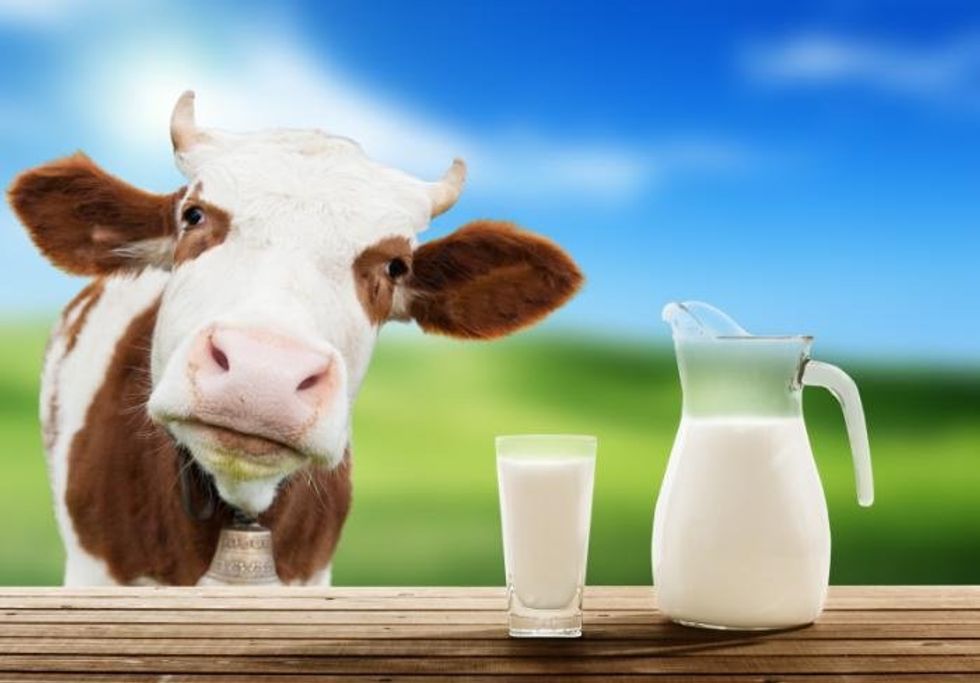In America, a balanced breakfast often contains milk. Whether it be in a cereal bowl or a tall glass, we generally consider it a staple. If you stop and think about it, when did this become the norm? Why did we decide it was a good idea? Is it actually a good idea? There is no solid answer as to whether or not we should be drinking cows milk but here are four reasons against it.
Humans aren’t meant to drink milk.
Lactose intolerance is a term most people have heard. This isn’t surprising as somewhere between 30 and 50 million Americans are lactose intolerant. What this means is that they are deficient in lactase. Lactase is the enzyme that breaks down lactose, the main sugar in milk.
As we get older, the activity of this enzyme decreases and in some cases, shuts off altogether. We need lactase to be able to digest milk in the early stages of life to get essential nutrients in liquid form when we haven’t developed enough to get them from a variety of sources.
Beyond that, milk is not an essential source of nutrients. We stop drinking our mother’s milk at a young age and then continue to drink the milk of another species for the duration of our lives. If we were meant to drink milk throughout our lives, wouldn’t it make sense for women to retain the ability to lactate even after they’ve stopped breastfeeding?
Many experts speculate as to whether or not humans are supposed to be able to digest lactose beyond a certain age. Some think that the only reason many of us have the ability to consume dairy products is because of a mutation many generations ago that stuck around as the human race continued reproducing and expanding what it consumes.
You’re getting more than you paid for.
There’s more to milk than just vitamins, calcium, and other minerals. Cows often receive a variety of hormones, steroids, antibiotics to make them ideal for food industry production. Many of these are not good for humans.
Pesticides also can be present. As animals absorb nutrients from the plants they eat, if these plants happen to contain pesticides (whether it be intentionally or not), the pesticides get absorbed also. They, just like the nutrients, are passed through the milk right to our tables.
One of the common hormones used in dairy cows is the Recombinant Bovine Growth Hormone or rBGH. While the FDA approved this for use in the US in 1993, it is not permitted in the European Union or Canada. Perhaps one of the reasons those countries do not use rBGH is because it potentially has a link to cancer.
Increases your risk of cancer.
“Early studies found a relationship between blood levels of IGF-1 and the development of prostate, breast, colorectal and other cancers” (American Cancer Society). This data hasn’t been fully verified by peer reviews and experiment recreation however, it could still potentially be correct. It is not the only aspect of milk that is being put to the test for fear of causing cancer.
The Harvard University of Public Health put out an article with a section discussing the increased risks of cancer that are potentially linked to milk consumption. When lactose in milk is digested, a sugar is released called galactose.
“High levels of galactose… have been studied as possibly damaging to the ovaries and leading to ovarian cancer.” As far as the effect on men’s health, Harvard performed a study which said “men who drank two or more glasses of milk a day were almost twice as likely to develop advanced prostate cancer as those who didn’t drink milk at all.”
It isn’t really the best source of calcium
The recommended amount of calcium daily for adults ages 19 through 50 is between 1,000 mg to 2,500 mg. Americans love to turn to milk to satisfy this need because of its claim to be a good source of calcium. But is it as good as we tend to think?
First, it is important to understand the concept of bioavailability. This refers to the proportion of a substance (such as calcium) that the body absorbs upon introduction of the substance. Cow’s milk has about a 30% absorption rate in humans. A cup and a half of kale contains the same amount of calcium as a glass of milk but has an absorption rate around 50% which means we are actually absorbing more from the kale than from milk.
Cows are not magically fountains of calcium. They need to get it from somewhere. That somewhere is the earth and its products. That being said, if we want optimal calcium, vegetables like kale or broccoli and some fruits are the way to go.





















